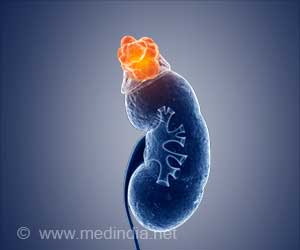Smart algorithm discovered finds a possible future treatment for childhood cancer neuroblastoma. This form of cancer in kids, which occurs in specialized nerve cells in the sympathetic nervous system, maybe life-threatening,

‘Despite advances in the molecular exploration of pediatric cancers, approximately 50 percent of children with high-risk neuroblastoma lack effective treatment.
’





The new treatment is based on activating a receptor protein, CNR2 (cannabinoid receptor 2), in the nervous system. A highly unusual method enabled this particular protein to be applied therapeutically. Instead of using traditional methods of drug development, this research group has developed a new computer algorithm capable of combining massive quantities of genetic and pharmacological data ('big data') from European and American hospitals and universities. The algorithm then suggested new treatments that could influence the basic mechanisms of the disease. "We were astonished when the algorithm came up with completely new ideas for treatment, such as CNR2, that no one has ever discussed in this context. So we decided to investigate this further in the lab," says Sven Nelander, senior lecturer at Uppsala University's Department of Immunology, Genetics, and Pathology, who is in charge of the study. The new treatments were investigated using cell samples from patients and in animal models, where they proved efficacious. The cancer cells' survival rate declined, for example, and tumor growth in zebrafish (Danio rerio) decreased, following treatment with a substance that stimulates CNR2.
The researchers have also developed the computer algorithm to enable it to be applied to other forms of cancer.
"Smart algorithms will be increasingly important in cancer research in the years ahead since they can help us, scientists, to find unexpected angles. We've already started a major project here in Uppsala, in which several types of cancer in children and adults will be investigated this way. Our hope is that this can result in more unexpected treatment options," Nelander says.
Source-Eurekalert








